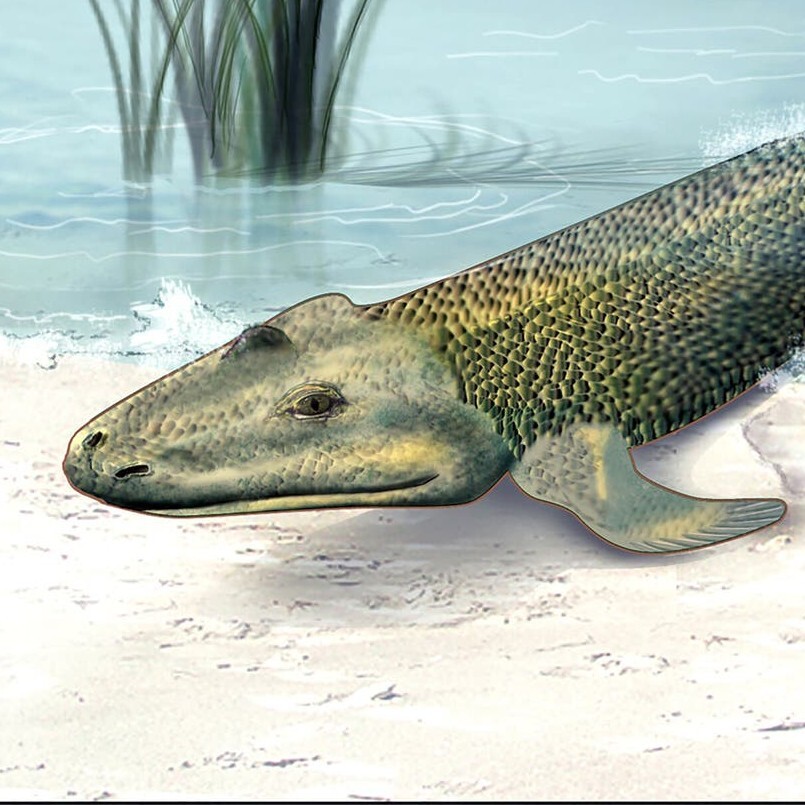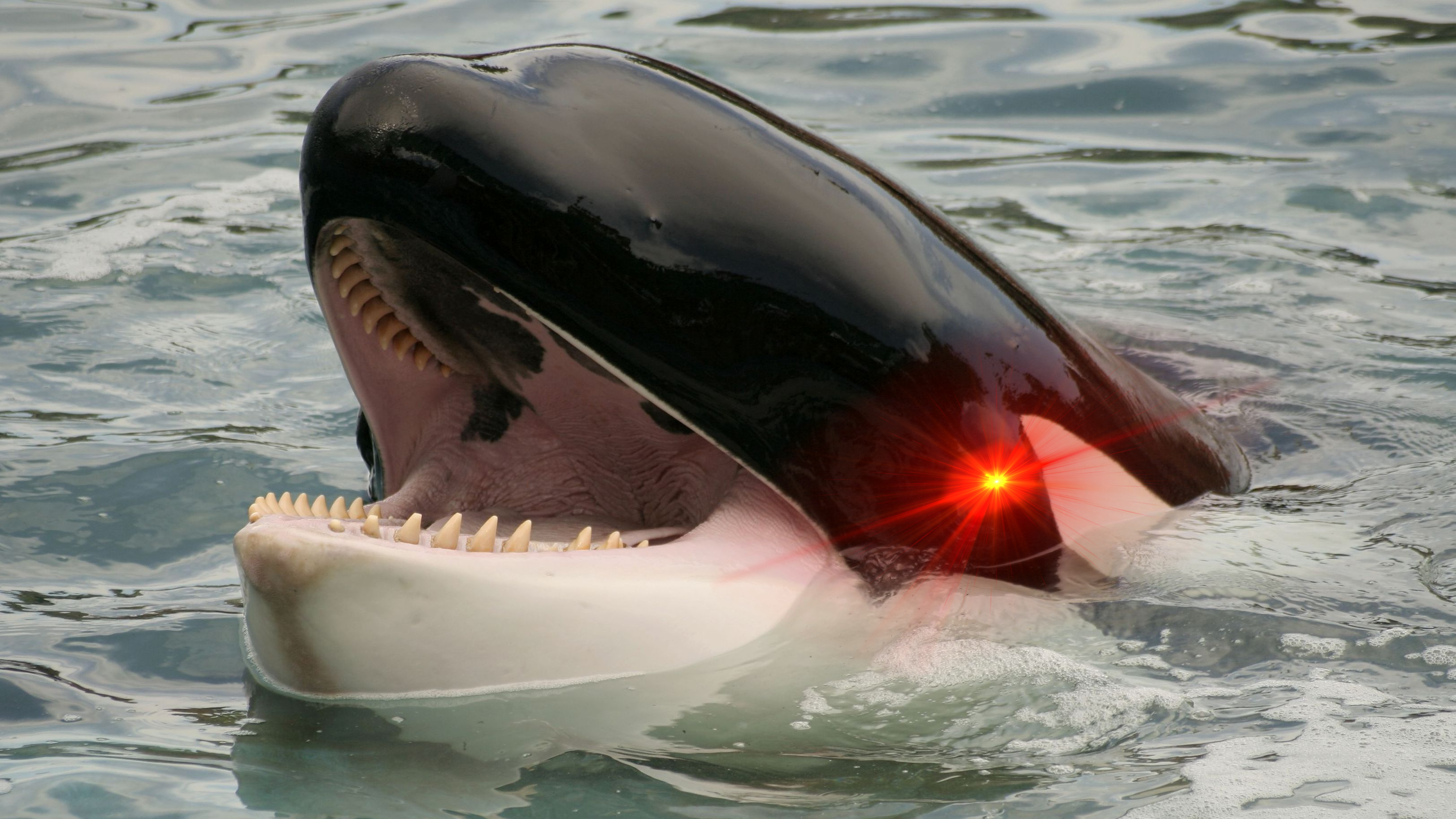I've seen in the past the explanation that hunting as a sport under the excuse of 'controlling the population of prey animals' is bullshit because in a short time the Department of Fish and Wildlife actually begins stocking and raising more deer for hunters to hunt.
I'm looking to form a good collection of sources that can be cited when someone brings up "hunting as a necessary evil" and associated arguments.
I don't have sources but if we stopped killing off all the predators like wolves the ecosystem could control itself
the only reason it's "necessary" (:doubt:) is because we as a species murdered most of the things that eat the prey animals
Short answer: no, overpopulation is bullshit.
Longer answer (less than 10 minutes): https://youtu.be/w34zMpRs4jA
Check her playlist on hunting for more myths debunking.
I need to read that, it sounds good. Thank you for the excerpt.
Of course, and we all know that but it's still a widely used cudgel against vegans. I'm looking for the best way to counter it, not with morality, with science.
Usually these people can't be reached by the argument of morality on the topic.
I'll copy paste my big post. It's a little antagonistic, but I'm too lazy to edit, so sorry about that.
overpopulated white tailed deer.
human chauvinism in the vegan thread smh
https://www.thoughtco.com/hunting-myths-and-facts-127898
edit:
- https://www.animal-ethics.org/animal-exploitation-section/animals-used-for-entertainment-and-as-companions-introduction/hunting/
This one has a list of sources.
edit edit: screw it, seems like y'all need some more vegan theory
"its more ethical to shoot a door, than to let it slowly starve to death over winter because they’re overpopulated. We have inexoribly changed the ecosystem with fencing and aggriculture. Deer can no longer freely disperse like they could 200 years ago… so overpopulation DOES mean suffering. [...]
"Literally one of the ONLY positive things about the US is we have amazing wildlife management. Its better than nearly every other country on Earth. "
This is the same creepy argument libertarians make to justify sweatshops as humane actually. "Well, if the sweatshop jobs weren't there, they'd starve or turn to prostitution." Or "if a person is drowning and someone comes up with a boat and charges them an assload to save them, well, it's more humane than letting them drown." Ah, it's just a coincidence that we profit massively off of someone else's dire situation that we put them in?
Somehow, it doesn't ping your radar as bullshit when the people who materially profit off the bodies of deer are assuring you that, actually, it's good to exploit and murder deer year after year, because otherwise they'll suffer even worse otherwise? It's bullshit. The system is the way it is by our design.
First off, deer populations are artificially inflated by deer breeding programs which are paid for by hunting licenses. They literally fucking breed the deer and "manage" the land (like clearcutting forests, planting deer-preferred plants and requiring tenant farmers to leave a certain amount of their crops unharvested in order to feed the deer, creating the edge habitat that is preferred by deer and also feeding the deer) so that the populations increase so that there's always enough stock to hunt.
The reality is that there are thousands of “state game farms” across the country artificially breeding animals like deer and pheasants, quail and partridges in the hundreds of thousands and releasing them into hunting ranges. In Wisconsin alone the state currently registers 372 “deer farms,” according to the Wisconsin Department of Agriculture, Trade and Consumer Protection. And when a disease outbreak occurs on these farms, entire herds are “depopulated.”
Here, it's not like they hide that a substantial chunk of their funding comes directly from hunting licenses (or at least they say most of their funding comes from hunters, but a study I cite below concludes otherwise):
https://www.wildlife.state.nh.us/funding/charts.html
http://files.dnr.state.mn.us/aboutdnr/budget/bottom_line/budget.pdf
And the amount of federal funding they get is based off of license sales, too:
The Secretary determines how much to give to each state based on a formula that takes into account both the area of the state and its number of licensed hunters.
https://en.wikipedia.org/wiki/Pittman%E2%80%93Robertson_Federal_Aid_in_Wildlife_Restoration_Act
Matt Hogan, executive vice president of the Association of Fish and Wildlife Agencies, pointed out, “Public support for hunting and fishing is crucial for conservation efforts. State fish and wildlife agencies have been and continue to be funded in large part by the contributions of sportsmen and women through license sales and excise tax payments on hunting and fishing equipment. To put it simply, without hunters and anglers, state fish and wildlife agencies would not be able to do their job conserving and managing wildlife for all Americans to enjoy.”
https://web.archive.org/web/20070615231714/http://www.responsivemanagement.com/download/news/newsrls_09_06.pdf
The whole point of our agencies is to conserve enough deer to hunt. They don't hide that they maintain a high population on purpose so that there can always be hunting seasons in perpetuity. They're conserving hunting stock. They're "managing" non-human populations so we don't run out of stock. We're certainly not doing this for the benefit of the deer as sentient individuals who deserve not to suffer; we're doing this because they are completely objectified as resources for our consumption.
An optimum population of deer balances positive demands (e.g., recreational hunting and viewing) with negative demands (e.g., agricultural and ornamental plant damage, vehicle collisions, ecosystem impacts). Despite damage caused by deer, Virginia’s white-tailed deer represent a beneficial economic and social resource.
https://dwr.virginia.gov/wildlife/deer/deer-management-program
In fact, "conservation" in North American is centered entirely on exploitation of resources, not consideration for sentient individuals nor even preservation of species, which is why game animals are bred and bolstered yet predators and other non-useful animals are murdered and driven out.
https://www.fws.gov/hunting/north-american-model-of-wildlife-conservation.html
"Professor Thomas Serfass, Frostburg State University, Maryland, chairman of their department of natural resources and biology, told Thuermer: “I would describe the North American Model as incomplete.”
Hunter control depends on it being incomplete. One of the huge elements missing is contributions of federal land management agencies. “Setting land aside in the public domain in perpetuity is probably the most substantive thing we do for wildlife conservation," says the professor.
Thuermer quotes study co-author Molde as saying, “What about this public lands argument. Holy Toledo, that’s a huge subsidy to hunters.”
We, the 94 percent non-hunter public, pay for the lands and services, but are told that hunters have all the rights to destroy our wildlife. We pay — they have the only say. Seems fair to them.
The study's authors begin: “With increased awareness and interest of the general (non-consumptive) public in controversial wildlife management issues such as fur trapping, predator control, trophy hunting, coyote killing contests and wolf reintroduction, a debate is before us as to whether the general public is or should be afforded a proper voice in wildlife management decisions.
“Sportsmen favor the current system, which places a heavy emphasis on their interests through favorable composition of wildlife commissions and a continued emphasis on ungulate management. Non-human predators (wolves, mountain lions, coyotes, ravens and others) are disfavored by wildlife managers at all levels as competition for sportsmen and are treated as second-class citizens of the animal kingdom. Sportsmen suggest this bias is justified because ‘sportsmen pay for wildlife,’ a refrain heard repeatedly when these matters are discussed. Agency personnel and policy foster this belief as well.”
https://madison.com/ct/columnist/patricia-randolph-s-madravenspeak-non-hunters-should-claim-rights-to/article_1eeaf0bf-8c11-5c5f-835b-30e73edc8890.html
Gill (1996) concluded that the narrowly based funding of state wildlife agencies has ‘‘blurred the essential distinction between public interest and special interest and inevitably eroded both scientific credibility and public trust.’’ We would argue that it is the perception not the reality that has blurred the distinction. For example, then director of the Nevada Department of Wildlife Ken Mayer wrote to the legislative sunset subcommittee “…the contribution to NDOW’s operating budgets from sportsmen is 79 percent of total funding” (Mayer, 2012). He was assuming that all of the federal excise tax transfers were hunter-sourced. This is a misrepresentation often used to manipulate public opinion and influence policy. This narrative “…logically encourages those who pay via licenses and permits for the privilege of using wildlife to expect greater benefits…Because [it’s believed that] hunters pay the bills, it is not surprising that they are given much attention and wield a great deal of influence…” (Jacobson et al, 2010).
https://www.wyofile.com/wp-content/uploads/2014/11/SMITH-1.pdf
Even if overpopulation was a real problem (it's not), there are far better solutions than murder and profit. For instance, we can stop breeding them in the first place. We can introduce birth control. We can reintroduce natural predators. We can even make sanctuaries where we care for deer to the end of their natural lifespans. There are lots of non-lethal options.
[1/2]
https://en.wikipedia.org/wiki/Wild_animal_suffering
"Wildlife science per se can rarely demonstrate that any decision leading to a management objective, such as decreasing a deer population, or to a management action, such as hunting animals, is a biological or ecological necessity. … Similarly, the decision to harvest a portion of a wildlife population is a reflection of a value position, a conclusion based partly on scientific evidence and efficacy of known alternatives and partly on particular beliefs about the appropriateness of certain human uses of wild animals (Kennedy 1985)."
"If a professional wildlife manager suggests that a decision is based solely on scientifically-derived biological considerations, the manager either misunderstands the nature of science (by confusing scientific judgements with ethical judgements) (Underwood and Porter 1991) or is deliberately trying to disguise or complement a value judgement under the veil of the legitimacy of science."
--Ethical and Scientific Judgements in Management: Beware of Blurred Distinctions
I'm no primitivist, but capitalism means we always have to grow and exploit the natural world more and more. But the answer isn't to murder humans. That's Malthusian bullshit. We don't have to keep exploiting the natural world. Line doesn't have to go up. The answer is to destroy capitalism.
We're leftists, aren't we? When our system is unjust, we fight for a new system. Don't throw up your hands and go, well, "it's more humane to murder sentient individuals than it is to let them suffer in the system we designed." A Modest Proposal is no more convincing for deer than it is for people. Try again.
[2/2]
Everyone is welcome to edit and improve this, btw.
As of right now we’ve murderer most of the animals that would prey on deer. So you can argue it’s necessary in that regard. We need to reintroduce wolves and grizzlies to their historic ranges tbh or what we can
Is there really a difference between humans killing [x] deer a year and humans deliberately creating environmental conditions that kill [x] deer a year, materially or morally?
You may not find direct sources but the social ecologist in me knows that the direct domination of human over the local ecology is unnecessary at the very least.
Prey populations will rise inversely to the population of natural predators. Natural predators rise linearly to meet the food abundance.
Its likely that the artificial predatory role humans are playing in hunting deer is therefore also artificially depressing the populations of natural predators, especially when we consider that humans often also hunt said predators out of "self defense".
TLDR If deer population skyrockets, so will predators, and naturally these balance themselves out. Human impact on local ecology is creating its own problems can could be fixed by simply leaving said ecologies alone.
https://www.humanesociety.org/resources/controlling-deer-populations-humanely#:~:text=PZP%20(porcine%20zona%20pellucida)%20is,female%20deer%20and%20other%20mammals.&text=Most%20importantly%2C%20because%20PZP%20is,and%20will%20not%20harm%20animals.
I remember coming across an article a few months ago concluding fairly certainly that hunting had not reduced deer populations. Didn't save it though. The speculated mechanism is that there's an economic incentive to keep deer populations elevated.




